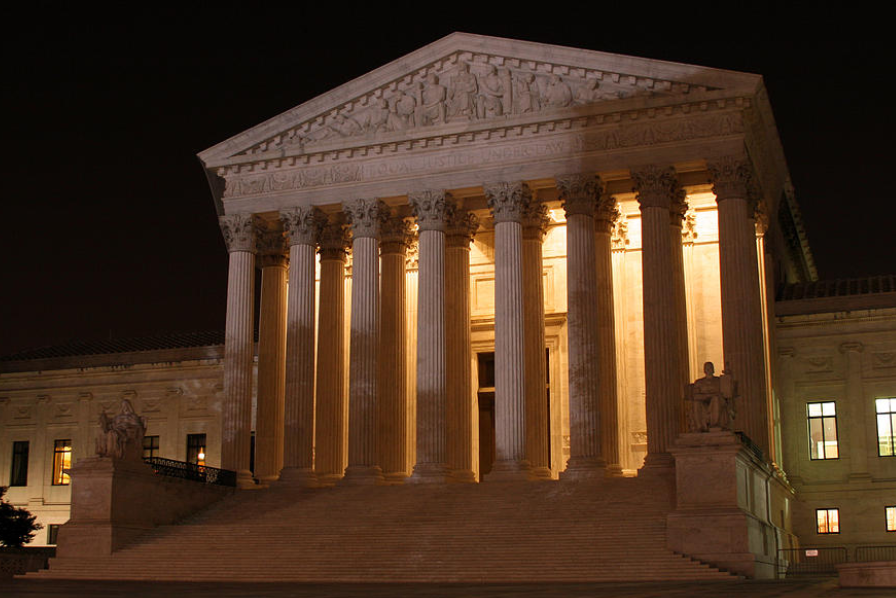Supreme Court Freezes Trump’s Deportation Agenda in Late-Night Legal Stunner as justices issued a surprising 7-2 ruling to block the rapid removal of thousands of Venezuelan migrants. The midnight ruling marks a major judicial intervention into former President Donald Trump’s controversial immigration approach using the 1798 Alien Enemies Act.
What Was Trump’s Deportation Policy and Why Did It Spark Controversy?
Trump aimed to deport Venezuelan migrants en masse by invoking the Alien Enemies Act, an old wartime law rarely used in modern immigration. His administration argued these migrants posed potential risks to national security due to tensions with Venezuela’s government. Critics, however, said the plan was a misuse of executive power and lacked due process for the individuals affected.
Why Did the Supreme Court Block the Policy?
The Court ruled that the plan violated constitutional protections by denying migrants the right to legal hearings and representation. The 7-2 vote shows bipartisan concern over executive overreach. Justice Sonia Sotomayor wrote that “the Constitution does not bend to political urgency”, emphasizing that every individual, regardless of immigration status, deserves due process.
Key Differences Between Trump’s Policy and Court Ruling
| Aspect | Trump’s Policy (2025) | Supreme Court Ruling (April 2025) |
|---|---|---|
| Legal Basis | Alien Enemies Act of 1798 | U.S. Constitution – Due Process Clause |
| Migrant Rights | No court hearings or legal review | Mandated individual hearings before deportation |
| Implementation Speed | Immediate, without judicial oversight | Blocked as unconstitutional |
| Affected Population | Over 15,000 Venezuelan migrants | All subject to restored procedural protections |
| National Security Justification | Claimed links to Venezuela’s hostile regime | Ruled insufficient and overly broad |
Who Is Kilmar Abrego Garcia and Why Was His Case So Important?
Garcia, a Venezuelan migrant, became the face of the legal battle after being deported without a hearing, despite having an active asylum request. His legal team argued that this was not only unlawful but life-threatening. The Supreme Court agreed, citing his case as evidence of serious constitutional violations under the policy.
What Happens Next for U.S. Immigration Law?
This decision may become a legal precedent, limiting future presidents from bypassing legal safeguards during deportation. Immigration courts must now individually assess Venezuelan migrant cases. The ruling rebalances power between the executive branch and the judiciary, ensuring future deportation efforts remain bound by the law.
Public and Political Reactions Across America
- Trump Allies: Condemned the ruling as weakening national security.
- Legal Experts: Celebrated it as a defense of civil rights and due process.
- Immigration Advocates: Called it a victory for human dignity and justice.
- General Public Sentiment (polls): A recent Gallup poll showed 59% of Americans support due process for all migrants, regardless of immigration status.
Key Takeaways from the Supreme Court’s Decision
[Supreme Court Ruling]
|
---------------------------------------
| | |
[Legal Impact] [Human Rights] [Political Fallout]
| | |
Due Process Migrant Protections GOP Criticism & 2024 Effects
Conclusion: A Turning Point in American Immigration Law
This late-night Supreme Court ruling doesn’t just halt one policy—it draws a legal line protecting constitutional rights from executive overreach. With over 15,000 Venezuelan migrants impacted and the 2024 election cycle underway, this case sets the tone for how America balances national security with human rights.
The decision reaffirms the judiciary’s vital role in checking presidential power, and it signals to future administrations that even in urgent times, the Constitution must come first.
[USnewsSphere.com / TG]





